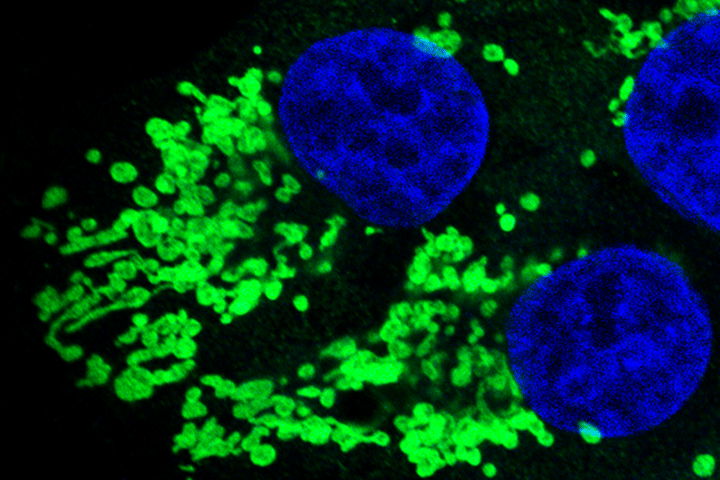Immunotherapy Treatments Provide Hope to Pancreatic Cancer Patients

Pancreatic cancer rates have increased over the past two decades. But treatment for what once was a devastating diagnosis is changing
Combination chemotherapy—treatment using two or more drugs—has had a huge impact in extending the lives of patients. And more new treatments are just down the road.
One area being explored is immunotherapy. There is a lot of hope that immunotherapy will be effective against pancreatic cancer but so far success has been elusive. Researchers are learning more about how immunotherapy works, and trying different approaches.
“We are aggressively studying how we can use immunotherapy to treat pancreatic cancer. Many clinical trials with new ideas have come forth across the country and we are hopeful that results will be positive,” says Robert Vonderheide, M.D., D.Phil., director of the Pancreatic Cancer Research Center at the Abramson Cancer Center at the University of Pennsylvania (Philadelphia).
How Immunotherapy Works
Immunotherapy enlists a patient’s own immune system to recognize and destroy cancer cells. Unlike chemotherapy, which kills cancer cells, immunotherapy activates a patient’s own immune cells to attack and eliminate cancerous tumors. There are several different types of immunotherapies, including vaccines, cytokines, and checkpoint blockade inhibitors. Like chemotherapy, there are side effects to immunotherapy treatments. However, they are different than those of chemotherapy. The most common ones are fatigue, flu-like symptoms, and rashes.
While no specific immunotherapy has been approved by the Food and Drug Administration (FDA) to treat pancreatic cancer, researchers have identified a number of opportunities. In fact, Vonderheide is co-director of a research consortium called Transforming Pancreatic Cancer to Treatable Disease, funded by the Lustgarten Foundation and Stand Up To Cancer (SU2C), that brings top pancreatic cancer researchers together to share their expertise. He and his team have additional funding from the Pancreatic Cancer Action Network and the National Cancer Institute. As a result of the Lustgarten-SU2C efforts, five clinical trials are being conducted at leading institutions worldwide. “We’re in the process of conducting clinical trials based on highly encouraging lab studies which have indicated that these approaches have promise,” he says.
Combining Immunotherapy with Standard Chemotherapy for Clinical Trials
Researchers are now looking at how immunotherapy combined with chemotherapy and other drug combinations might enhance effectiveness. “Studies in the laboratory show immunotherapy can be effective in fighting pancreatic cancer when given in conjunction with drugs that break up the fibrous tissue in these tumors,” he explains.
According to Vonderheide, one of the most encouraging studies examines the protein, CD40, best known for its ability to activate front-line immune cells. By combining antibodies to CD40 with gemcitabine, a standard chemotherapy drug used to treat pancreatic cancer, Vonderheide and his colleagues discovered that tumors shrank substantially in some patients.
In September 2016, a team of researchers at St. George’s University of London announced encouraging results from an international study combining gemcitabine with IMM-101. Patients with metastatic pancreatic cancer who were given the combination treatment had their lives significantly extended, compared with the group that was given gemcitabine alone. The new treatment does not have any side effects. The researchers now plan to pursue a phase III trial, after which they hope the drug can be licensed.
Focus on Vaccines
Vaccines are substances that are put into the body to start an immune response against certain diseases. In the same way the annual flu vaccine protects against influenza, doctors are now investigating whether vaccines could boost the body’s immune response to pancreatic cancer cells. In fact, cancer vaccines are among the most common types of immunotherapy currently being studied, with several cancer vaccines in the clinical trials pipeline.
Researchers at the Johns Hopkins Kimmel Cancer Center in Baltimore are currently testing a vaccine treatment for pancreatic cancer that supercharges the immune system. The vaccine causes immune cells, which tend to be tolerant of cancer, to seek out and kill pancreatic cancer cells throughout the body. The treatment uses two different vaccines, GVAX followed by CRS-207.
While such vaccines are designed to treat rather than prevent pancreatic cancer, Vonderheide says scientists are also working to develop a vaccine that would prevent pancreatic cancer. “Our hope is that the preventative vaccine could be given to individuals who are at high risk of pancreatic cancer, such as those with inherited mutations in the BRCA1 or BRCA2 genes,” he adds.
“The clinical results we’ve seen with immunotherapy are unprecedented,” he states. “I fully expect to see a breakthrough in how we treat pancreatic cancer within the next five to 10 years, if not sooner.”
To locate a pancreatic cancer clinical trial focusing on immunotherapy, visit the Let’s Win Trial Finder.





